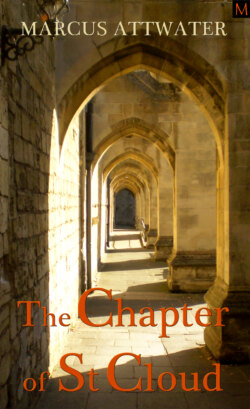Читать книгу The Chapter of St Cloud - Marcus Attwater - Страница 14
На сайте Литреса книга снята с продажи.
12
ОглавлениеIt's happened before, of course. That's what you get when you live a long time, you get to the point where everything has happened before. You get to the point where even acknowledging the fact becomes habitual. You forget that for younger generations, this time round is still new and urgent.
The abbot thought about this as he observed the prior dealing with things. That's what the prior did, and did well. He dealt, he managed, he handled. He made the decisions weaker minds shied away from, and was admired for it. Had it always been thus, from the very beginning? The Rule said that under the abbot there was a prior as second-in-command, the abbot caring for the spiritual needs of the chapter and the prior for the secular. But priors came and went, and the division was not always that clear-cut. Tension between abbot and prior was nothing new, either. So the abbot was not surprised when one of the brothers came to speak to him in private, soon after his conversation with the prior.
'Tell me everything,' he commanded.
'I don't know everything,' Brother Stephen complained, 'That is what I wished to talk to you about. Apparently, there is a threat to our secrecy. Sarah says so, but of course he will not trust me with it. What's he planning?'
'Are you sure you wish to know?' the abbot asked him.
'No!'
It took the abbot a moment to realise that this was not an answer to his question, but a protest against its implications.
'No, it can't be that bad,' Stephen said, 'Not again. Surely he won't.'
'I am afraid he will, if he believes it necessary.'
Oh, the weasel words of it. No one, hearing this conversation, could tell what, exactly, they suspected the prior of planning. But that was always the way of it. The prior had his responsibility, and it was not theirs.
'We must protect the younger ones,' Stephen said, 'They can't know of this, father.'
'I agree. But let's not be hasty. We may forestall this, if we are careful. We may do some dealing of our own.'
He outlined his plan, so much simpler and milder than the prior's machinations.
They can't know of this! had been that early brother's cry, too, when he learned the secrets of the abbey. Dear Lothar. He had been horrified by where his convictions led him, but yet with the courage to carry them through. He had dissembled before Charlemagne himself, he had been a master of words, never betraying his unbelief. For that was the creed of the Chapter of St Cloud, brought into being by the death of two young princes: there is no life but this life and we must strive to keep it. This had been a shocking thought in an age of almost universal belief, they had been heretics before heresy was even thought of. They had been alone so long in this conviction that the abbot still found it strange that these days, most people shared it. Strange, also, that most people instead of a promised life eternal just accepted the inevitability of death. It didn't follow at all, as Lothar had so clearly seen. If this life is all there is, then we must hold onto it above all else, and that had always been the chapter's aim. Heresy and hubris. Such sins they had been, in the eyes of the church. But there was no concept of sin in the Rule of the chapter, though there had always been, and always would be, responsibility. Lothar's words still survived, in their much-copied uncial and later Gothic guises, and now in scholarly editions. He was always cited together with Theodulf and Alcuin, whom he knew and exchanged views with at the emperor's bright court, a scholar among scholars. It was easy to miss what wasn't there: nowhere in his ornate Latin did Lothar refer to the life to come. Already the chapter's thoughts were only for this life, already the abbot's days were long. Lothar died, his brothers died, and that pain was never mitigated by a fantasy of heaven.
